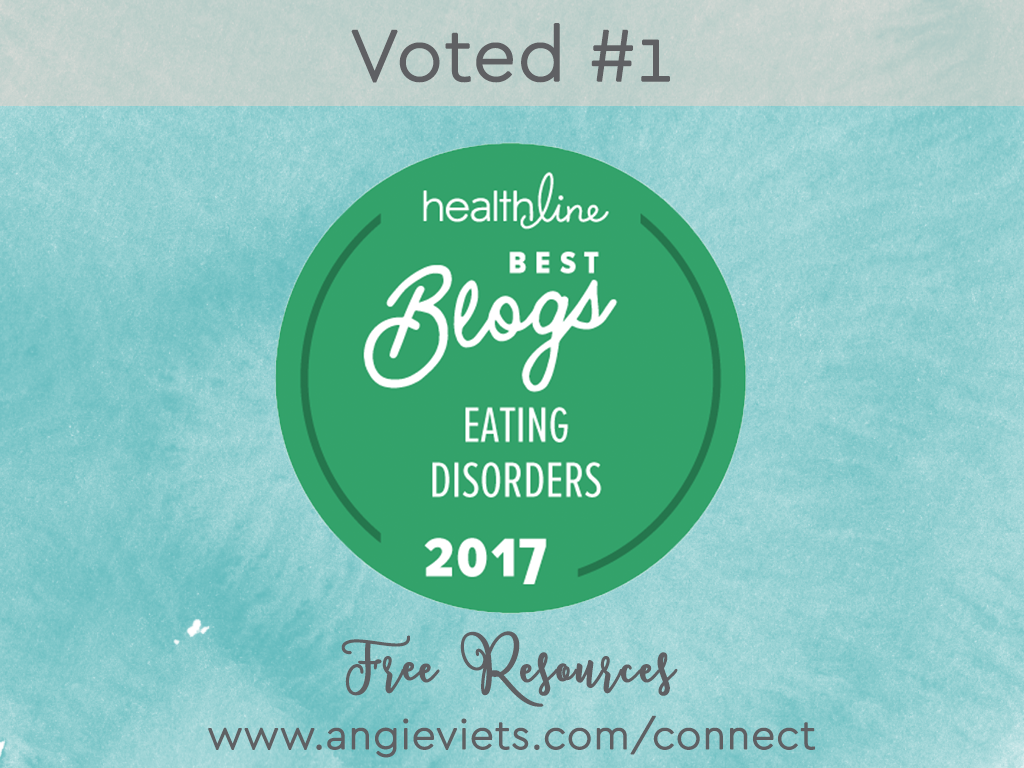Are You a Competent Eater? Here's How to Know
Why We All Need to Know About The Harmful Effects of Weight Stigma
Are BMI Classifications Misleading?
A Weight-Neutral Approach to Health and Wellbeing
What Does "Normal Eating" Even Mean?
How to Navigate Food Abundant Holidays While in Eating Disorder Recovery
Try These Powerful Tools to Stop Emotional Eating
Try These Powerful Tips to Stop Emotional Eating
Emily Fonnesbeck, RD
Food is social, it holds memories, and we feel comfort, satisfaction and pleasure from it. In that way, we all are emotional eaters to a certain extent. Emotional Eating only becomes an issue when we use food as the only way to consistently distract from or numb uncomfortable emotions.
It’s much more common than some realize, and can feel absolutely overwhelming to the person trying to make sense of it. It’s really easy to blame the food and become rigid and restrictive with what foods are allowed in the house or on a diet plan.
Unfortunately, this only works to increase emotional distress, feelings of deprivation and cravings for the very foods that may be felt to be problematic. Restriction breeds rebellion.
In my experience there are two ways to work effectively with emotional eating. They complement and support each other while also being their own unique skill or tool.
1. Feel the emotion
Imagine that a 2-year-old is trying to get your attention. She may start by saying your name or tapping you on the leg. What happens if you don’t answer? If you have experience with 2-year- olds, you know that she gets louder and louder and more obnoxious until you answer. However, if you had responded the first time, it’s likely she just needed to be listened to, validated, helped and then sent on her way.
The same could be said for your feelings and emotions. The more you ignore them, the bigger they get. The middle part of your brain, called the limbic system, is responsible for processing emotions.
In his book “Mindsight”, Dr. Dan Siegel, a professor of clinical psychiatry at the UCLA School of Medicine and executive director of the Mindsight Institute, teaches the reader about a technique called “name it to tame it.”
Neuroscience has found that naming the emotion like “I feel sad” can actually decrease the stress response in the brain. When you name it, your brain increases soothing neurotransmitters that are sent to your limbic system to calm it down. The very act of moving toward the emotion, naming it and aiming to understand it decreases its power over you.
A big hurdle to doing this is the common propensity of judging yourself for how you feel. Maybe you feel like you shouldn’t feel frustrated so you avoid acknowledging it. Maybe you feel like you should feel happy so you avoid acknowledging your true emotion. Separate who you are from what you feel.
Please note that in our “name it to tame it” example above, we used the phrase “I feel sad” not “I am sad.” Feelings, thoughts, and emotions are only activity of the mind, not who you are. Acknowledging them gives you a chance to be transparent, honest and authentic and move toward growth and healing.
Another hurdle is identifying how you truly feel. If you say “I am angry” and don’t feel the calming neurotransmitters doing their job, it may be because you didn’t identify the true emotion.
Maybe you feel hurt, which is making you feel angry. Aim to understand and validate rather than judge and react.
Why is feeling the emotion important? Because if you can move toward the emotion, then you won’t need to move way from it — and toward food.
2. Avoid emotional reactivity
The second technique may seem to be at odds with the first. We aren’t trying to avoid emotions, just avoid letting them get to a point where they feel unmanageable. In working with clients I find there are very specific triggers for emotional reactivity.
First, you don’t stand a chance against emotional eating if you aren’t eating consistently, regularly and adequately. It’s very difficult to think cohesively, rationally and clearly when you are overly hungry. Our brains only burn glucose for energy, so if blood sugar levels are dropping, you can expect that not much fuel is getting to your brain. If you are prone to emotional eating already, feeling overly hungry just creates the perfect storm.
Eat balanced meals (carbohydrate, protein, fat, fruit and/or vegetable) three times a day, adding snacks between if meals are longer than three to four hours apart. I am certain that you will feel more level-headed in many areas, including with food. Skipping meals might make you feel like you are saving time, but I assure you it’s only backfiring.
Second, establish clear work-life boundaries. If life feels out of balance, it’s easy to become burned out, drained and reactive. If you are strung out in all other areas of your life, it's easy to let food become the place where you throw caution to the wind and unwind. Set clear work-life boundaries and be sure to include time for your own personal hobbies and passions. Be realistic and appropriate in setting those boundaries, but do set them.
I would also recommend setting a clear boundary that establishes body autonomy. This would mean letting loved ones know that you prefer them to refrain from making comments about your food or your weight (and ideally theirs too). Too often those comments can feel triggering, elicit feelings of shame and often send individuals toward food and emotional eating behaviors. Keep yourself safe by setting appropriate boundaries.
Third, find ways to be proactive in self-care to avoid “crisis mode.” You can handle what life throws at you if you cultivate resilience regularly. This will mean different things to different people, but some good examples might include taking regular breaks during the day to get up and stretch, turning on music while you work.
Put a project aside for a bit to work on something less draining (but that lets you still feel productive), practice time management by planning your day ahead of time, start your day with meditation and/or prayer to feel connected and grounded, eat meals away from your desk, set regular sleep patterns and make time for physical activities you enjoy.
Your emotions, feelings and well-being matter. Being too busy for them or pretending they don’t matter is likely manifesting in emotional eating. See it as a sign that coping strategies and self- care behaviors are inadequate and take steps to support yourself.
Emily Fonnesbeck, RD is a Registered Dietitian who owns her own private practice in southern Utah. Her nutrition passion consists of helping individuals free themselves from diets, disordered eating, food anxiety, poor body image and obsessive exercise. She has a non-diet, weight-neutral, client-centered approach to help people make peace with food and live confident, healthy and satisfying lives.
Visit her website.



















